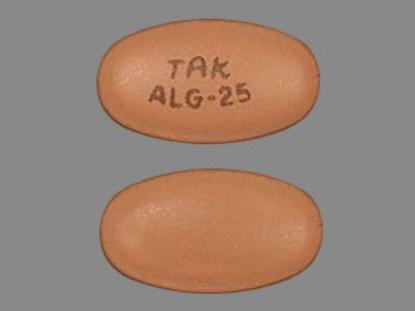Alogliptin Side Effects
Medically reviewed by Drugs.com. Last updated on Jun 11, 2024.
Applies to alogliptin: oral tablet.
Serious side effects of alogliptin
Along with its needed effects, alogliptin may cause some unwanted effects. Although not all of these side effects may occur, if they do occur they may need medical attention.
Check with your doctor immediately if any of the following side effects occur while taking alogliptin:
More common side effects
- anxiety
- blurred vision
- chills
- cold sweats
- coma
- confusion
- cool, pale skin
- depression
- dizziness
- fast heartbeat
- headache
- increased hunger
- nausea
- nightmares
- seizures
- shakiness
- slurred speech
- unusual tiredness or weakness
Less common side effects
- chest pain or tightness
- decreased urine output
- dilated neck veins
- irregular heartbeat
- swelling of the face, fingers, feet, or lower legs
- trouble breathing
- weight gain
Rare side effects
- blistering, peeling, or loosening of the skin
- bloating
- constipation
- cough
- dark-colored urine
- diarrhea
- difficulty with swallowing
- feeling of discomfort
- fever
- general feeling of tiredness or weakness
- headache
- hives, itching, or rash
- indigestion
- inflammation of the joints
- joint or muscle pain
- large, hive-like swelling on the face, eyelids, lips, tongue, throat, hands, legs, feet, or sex organs
- light-colored stools
- loss of appetite
- muscle aches
- pains in the stomach, side, or abdomen, possibly radiating to the back
- puffiness or swelling of the eyelids or around the eyes, face, lips, or tongue
- red skin lesions, often with a purple center
- red, irritated eyes
- sore throat
- sores, ulcers, or white spots in the mouth or on the lips
- stomach pain, continuing
- swollen lymph glands
- vomiting
- yellow eyes or skin
Incidence not known
- redness of the skin
- severe joint pain
- swelling of the body
Other side effects of alogliptin
Some side effects of alogliptin may occur that usually do not need medical attention. These side effects may go away during treatment as your body adjusts to the medicine. Also, your health care professional may be able to tell you about ways to prevent or reduce some of these side effects.
Check with your health care professional if any of the following side effects continue or are bothersome or if you have any questions about them:
Less common side effects
- body aches or pain
- ear congestion
- loss of voice
- sneezing
- stuffy or runny nose
For healthcare professionals
Applies to alogliptin: oral tablet.
General adverse events
The most frequently reported side effects included nasopharyngitis, headache, and upper respiratory tract infection.[Ref]
Gastrointestinal
- Common (1% to 10%): Abdominal pain, gastroesophageal reflux disease
- Uncommon (0.1% to 1%): Pancreatitis
- Postmarketing reports: Acute pancreatitis, diarrhea, constipation, nausea, ileus[Ref]
During clinical trials, acute pancreatitis was reported in 6 (0.2%) patients receiving 25 mg and 2 patients (less than 0.1%) who were treated with active comparators or placebo. In a cardiovascular outcome trial of patient with high cardiovascular risk, acute pancreatitis was reported in 10 patients receiving this drug and 7 patients receiving placebo (0.4% vs 0.3%).[Ref]
Musculoskeletal
- Frequency not reported: Arthralgia[Ref]
Between October 2006 and December 2013, thirty-three cases of severe arthralgia have been reported to the FDA Adverse Event Reporting System Database. Each case involved the use of 1 or more dipeptidyl peptidase-4 (DPP-4) inhibitor. In all cases, substantial reduction in prior activity level was reported, 10 patients were hospitalized due to disabling joint pain. In 22 cases, symptoms appeared within 1 month of starting therapy, in 23 cases symptoms resolved less than 1 month after discontinuation. A positive rechallenge was reported in 8 cases, with 6 cases involving use of a different DPP-4 inhibitor. Sitagliptin had the greatest number of cases reported (n=28) followed by saxagliptin (n=5), linagliptin (n=2), alogliptin (n=1), and vildagliptin (n=2).[Ref]
Hepatic
- Postmarketing reports: Hepatic enzyme elevations, fulminant hepatic failure[Ref]
Hypersensitivity
- Uncommon (0.1% to 1%): Hypersensitivity reactions (0.6%)
- Postmarketing reports: Anaphylaxis, angioedema, rash, urticaria, severe cutaneous adverse reactions (Stevens-Johnson syndrome)[Ref]
Nervous system
- Common (1% to 10%): Headache[Ref]
Respiratory
- Common (1% to 10%): Nasopharyngitis, upper respiratory tract infection[Ref]
Dermatologic
- Common (1% to 10%): Pruritus, rash
- Postmarketing reports: Exfoliative skin conditions including Stevens-Johnson syndrome, erythema multiforme, angioedema, urticaria
Dipeptidyl peptidase-4 inhibitors:
- Postmarketing reports: Bullous pemphigoid[Ref]
Postmarketing reports of bullous pemphigoid requiring hospitalization have been reported with dipeptidyl peptidase-4 (DPP-4) inhibitors use. These case typically recovered with topical or systemic immunosuppressive treatment and discontinuation of DPP-4 inhibitor.[Ref]
Metabolic
- Common (1% to 10%): Hypoglycemia
Based on a pooled analysis the hypoglycemic risk of this drug was considered neutral.
Cardiovascular
- Frequency not reported: Heart failure[Ref]
In a clinical trial in patients with recent acute coronary syndrome, a greater proportion of patients receiving this drug were hospitalized for congestive heart failure compared with placebo (3.9% [n=106] vs 3.3% [n=89]),[Ref]
References
1. Cerner Multum, Inc. "Australian Product Information."
2. Cerner Multum, Inc. "UK Summary of Product Characteristics."
3. (2013) "Product Information. Nesina (alogliptin)." Takeda Pharmaceuticals America
4. US Food and Drug Administration (2015) FDA Drug Safety Communication: FDA warns that DPP-4 inhibitors for type 2 diabetes may cause severe joint pain. http://www.fda.gov/downloads/Drugs/DrugSafety/UCM460038.pdf
More about alogliptin
- Check interactions
- Compare alternatives
- Reviews (9)
- Drug images
- Dosage information
- During pregnancy
- Drug class: dipeptidyl peptidase 4 inhibitors
- Breastfeeding
- En español
Patient resources
Other brands
Professional resources
Other brands
Related treatment guides
Further information
Alogliptin side effects can vary depending on the individual. Always consult your healthcare provider to ensure the information displayed on this page applies to your personal circumstances.
Note: Medication side effects may be underreported. If you are experiencing side effects that are not listed, submit a report to the FDA by following this guide.

